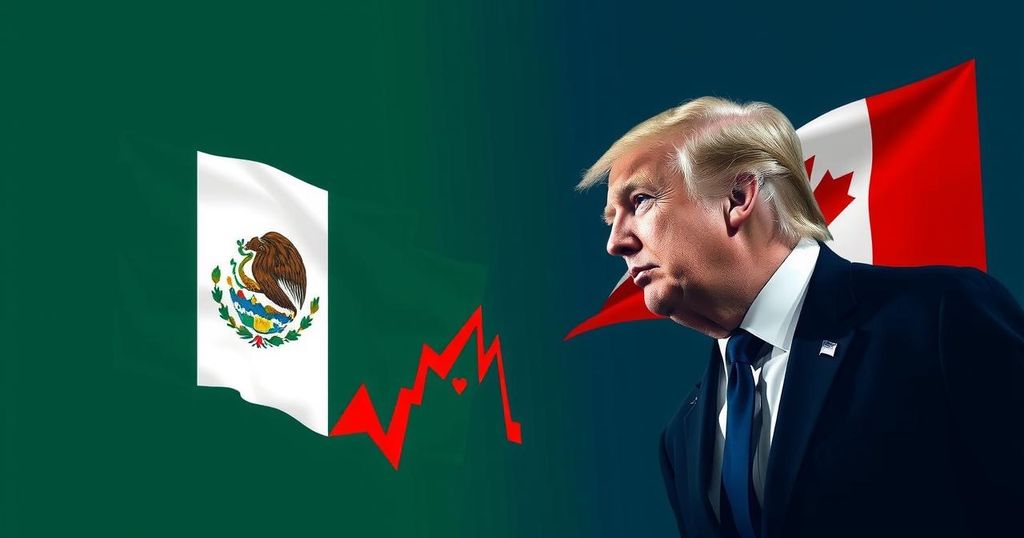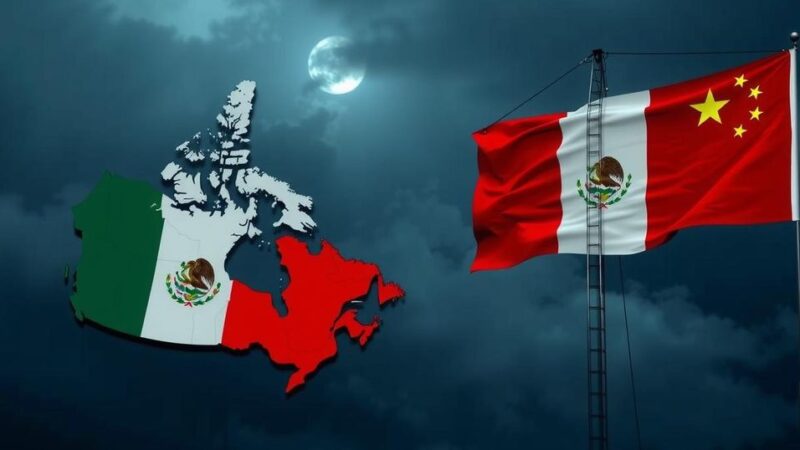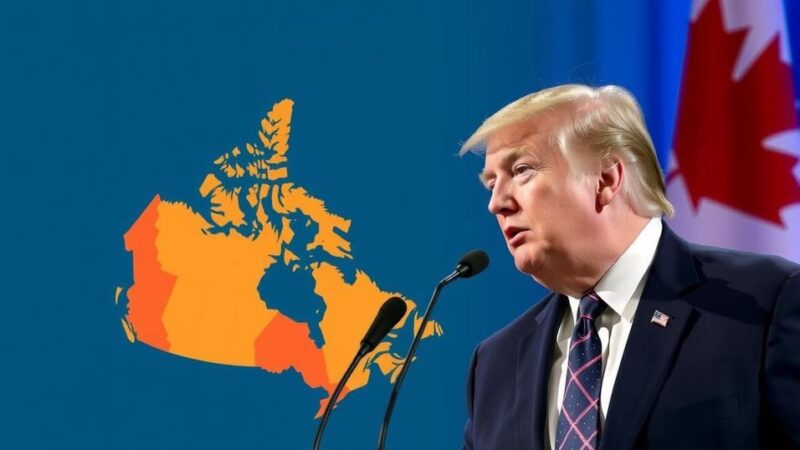President-elect Trump proposes imposing tariffs on imports from Mexico, Canada, and China, potentially leading to increased consumer prices and jeopardizing the USMCA trade deal established in 2020. While intended as a negotiation tactic, experts warn the impact may be less effective due to predictability. Economists anticipate these tariffs could cost American households significantly, raising concerns about inflation and trade relations.
President-elect Donald Trump has threatened to impose tariffs on imports from Canada, Mexico, and China, potentially triggering a rise in consumer prices on various goods. His plan to charge a 25% tariff on products from Mexico and Canada until they address issues regarding illegal immigration and drug trafficking could undermine the United States-Mexico-Canada Agreement (USMCA), which was implemented in 2020 under his administration. Additionally, a 10% tariff on Chinese goods is proposed.
Given that Canada, Mexico, and China are among the United States’ primary trading partners, such tariffs have the potential to affect numerous sectors of the American economy. Experts caution that while these tariffs may serve as a bargaining tool, their effectiveness may diminish due to the predictable nature of these threats, as nations prepare for potential outcomes.
Raymond Robertson, a professor specializing in trade and economics, stated, “This is more likely a play designed to put pressure on our closest trading partners,” noting that countries may react by seeking alternatives, thus increasing prices for American consumers. He added, “Trump ran on this whole campaign that inflation is too high, but now he’s going to put a tax on everything you buy.” Economists largely agree that tariffs drive inflation, with estimates showing that Trump’s proposed tariffs could cost American households over $2,600 annually.
The USMCA, which replaced the North American Free Trade Agreement (NAFTA), allowed for tariff-free trade among the three nations. Trump’s threat to reimpose tariffs may violate this agreement, compromising the trade relationships established through extensive negotiations. Canadian Prime Minister Justin Trudeau remarked on their recent conversation, indicating a collaborative approach to address shared challenges, while Mexican President Claudia Sheinbaum warned against embarking on a trade war, emphasizing cooperation to resolve issues of migration and drug consumption.
The implementation of tariffs stands to not only escalate tensions but also complicate Trump’s previously touted USMCA accomplishment, raising questions about the stability of international trade agreements established during his administration.
The article addresses potential implications of President-elect Donald Trump’s proposed tariff plan targeting Canada, Mexico, and China. Specifically, it evaluates how these tariffs may disrupt established trade agreements, particularly the USMCA, and impact American consumers by elevating prices of goods. The analysis reflects on the responses from relevant trade partners and the broader economic consequences stemming from the tariffs. Economists provide insights into the inflationary nature of tariffs and the likely reactions from trading partners.
In conclusion, President-elect Trump’s tariff proposals could significantly alter trade dynamics with crucial partners like Canada and Mexico, jeopardizing the USMCA. The inflationary impact on American consumers and the strategies that trading partners may adopt in response to these tariffs could deepen economic challenges. The responses from both Canadian and Mexican leaders underscore the need for diplomacy and cooperation rather than conflict in addressing complex economic issues. Overall, the long-term consequences of such tariffs warrant careful monitoring as the administration transitions.
Original Source: abcnews.go.com






